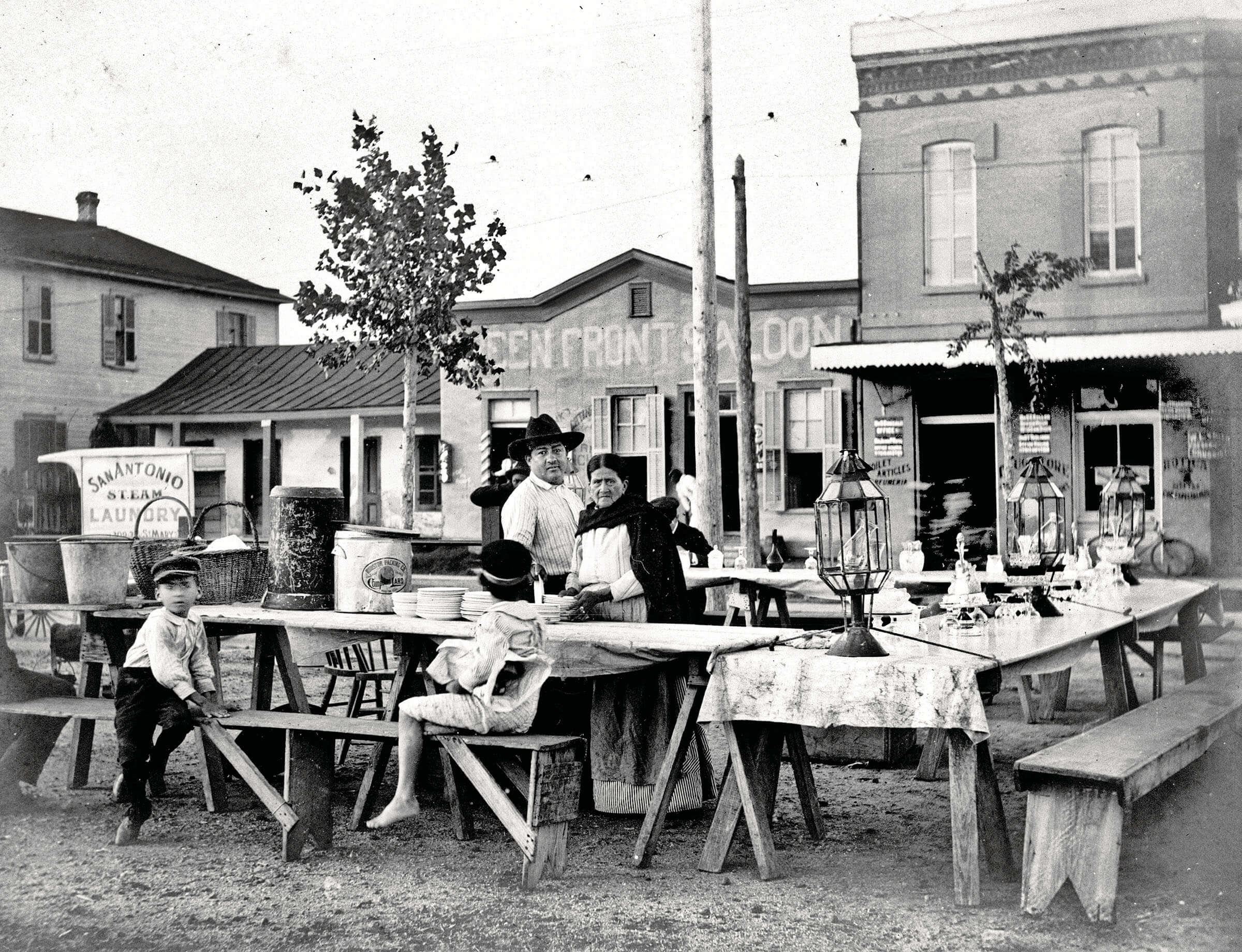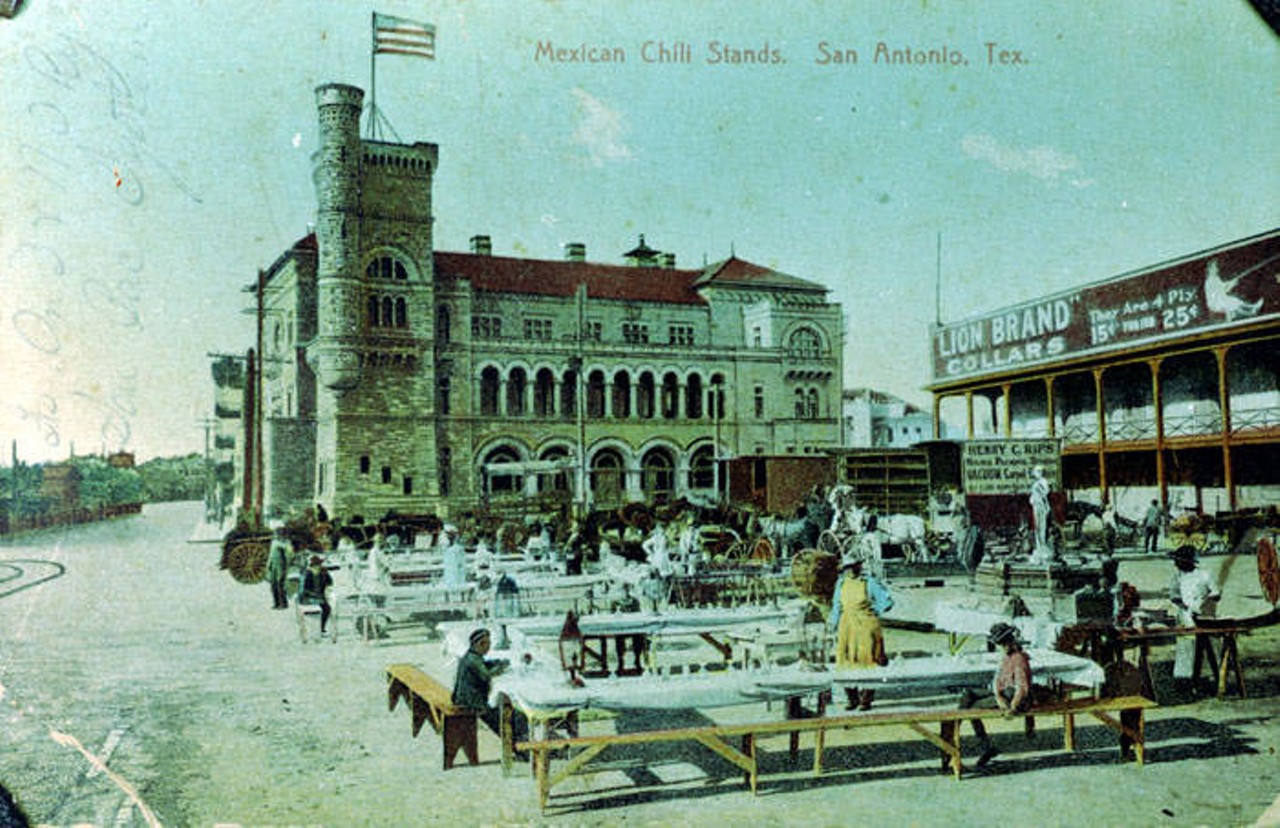From the 1860s until the late 1930s, one of the primary amusements of both visitors and locals was the food and entertainment offered in the plazas of San Antonio by the Chili Queens.
These women served chili con carne and other Mexican American delicacies from dusk until dawn at various San Antonio plazas over the years -- setting up tables and benches and bringing pots of food to cook or reheat over their flickering mesquite fires and to serve by the light of their oil lanterns. As morning came, their families helped them cart everything away. Wandering musicians and singers provided a festive air to the unique proceedingsunique, that is, outside Mexico. In Mexico, the open-air plaza restaurants were not celebrated for their charming food-servers. Only San Antonio had Chili Queensand while they liked to joke, banter, and flirt with customers, they were well chaperoned by family members who guarded their virtue.
Visiting writers such as Stephen Crane, author of
Red Badge of Courage, were charmed by the Chili Queens. He recalled in 1895 that "upon one of the plazas, Mexican vendors with open-air stands sell food that tastes exactly like pounded fire-brick from Hades -- chili con carne, tamales, enchiladas, chili verde, frijoles." Crane depicted a romantic scene: "In the soft atmosphere of the southern night, the cheap glass bottles upon the stands shine like crystal and lamps glow with a tender radiance. A hum of conversation ascends from the strolling visitors who are at their social shrine."
O. Henry, who visited San Antonio in the 1880s and 1890s, wrote in his short story, "The Enchanted Kiss", that "the nightly encampments upon the historic Alamo Plaza, in the heart of the city, had been a carnival, a saturnalia that was renowned throughout the land." Then the caterers numbered hundreds, the patrons thousands. "Drawn by the coquettish senoritas, the music of the weird Spanish minstrels, and the strange piquant Mexican dishes served at a hundred competing tables, crowds thronged the Alamo Plaza all night."
In 1893, the city of San Antonio had a chili stand at the Chicago World's Fair. This inclusion is said to have introduced chili to the Midwest.
The chili stands were closed by the City Council at various times over the years for sanitary reasons, but public outcry would soon cause them to reopen. Slowly, the number of Chili Queens dwindled, and finally, in the early 1940s, the City Health Department closed their stands permanently because they deemed the dishwashing methods unsanitary.















